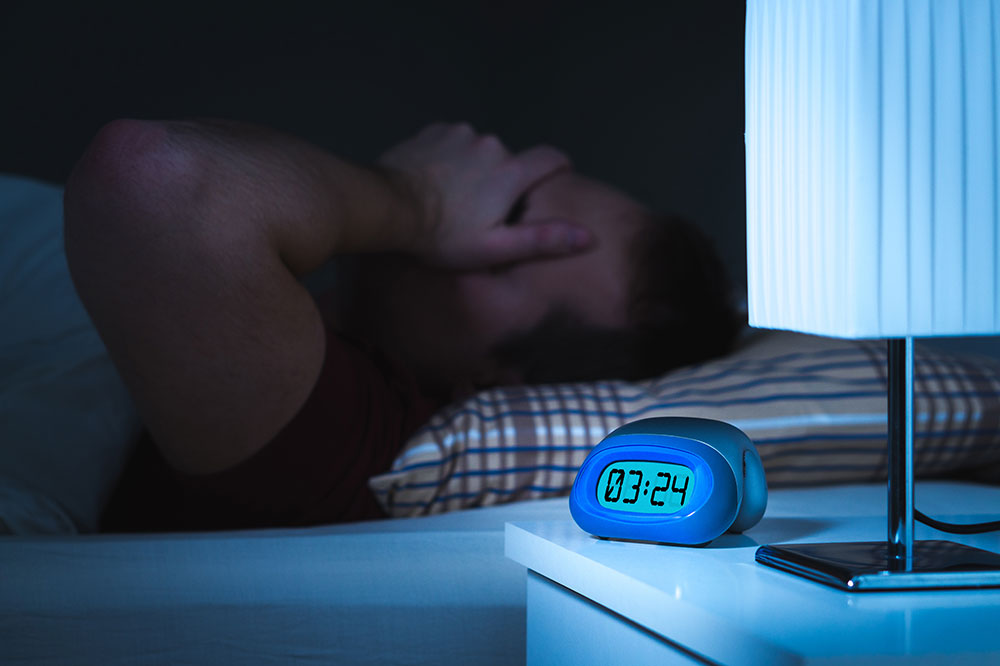Understanding the Link Between Weight and Sleep Apnea
For those struggling with sleep apnea, weight changes can significantly impact the condition. Dr. Scott Clinton, our experienced sleep dentist in Waxahachie, TX, explains the strong connection between sleep apnea and weight.
Being overweight is a significant risk factor for sleep apnea, as it can obstruct your ability to breathe during sleep. Discover more about this link and how you can manage it, or contact our Waxahachie dental office at (972) 737-5337 to schedule your consultation today.

How Sleep Apnea Affects Weight Gain

Sleep apnea can contribute to weight gain. Research has shown insufficient sleep may lead to increased weight, particularly in men. A notable study revealed men sleeping only five hours per night gained one to two pounds weekly. This is because disrupted sleep can affect hormone levels and appetite control.
Does Weight Increase Sleep Apnea Risk?
Being overweight or obese is a leading risk factor for obstructive sleep apnea (OSA). Excess fat around the neck can narrow the airway, making breathing difficult. Approximately 70 percent of people with OSA are overweight. The severity of symptoms often correlates with the degree of excess weight.
Factors contributing to sleep apnea in overweight individuals:
- Neck Fat Deposits: Obstruct the airway during sleep.
- Inflammation: Excess weight can cause inflammation, further narrowing the airway.
- Reduced Lung Volume: Obesity can decrease lung capacity and weaken breathing muscles.
- Leptin Resistance: Linked to obesity, this condition may impair breathing regulation during sleep.

Do CPAP Machines Lead to Weight Gain?
CPAP machines are a common treatment for sleep apnea. However, some users may experience weight gain, possibly due to improved sleep and decreased energy expenditure. A 2015 study indicated CPAP users might see an increase in body mass index (BMI), independent of other factors like age or baseline weight.
The Role of Weight Loss in Sleep Apnea Management
Losing weight can significantly improve sleep apnea symptoms. A study from Sweden’s Karolinska Institute found a 58 percent improvement in symptoms in men who followed a restricted diet for nine weeks. Weight loss also reduces the risk of related health issues like heart disease and diabetes.
Effective weight loss strategies include:
- Enjoyable Exercise: Activities like hiking, walking, and sports can be fun and sustainable ways to exercise.
- Healthy Diet: Adopting a Mediterranean diet can help manage sleep apnea and improve health. This diet is rich in fruits, vegetables, and healthy fats, making it easy to maintain long-term.

Frequently Asked Questions
Can weight loss cure sleep apnea?
While weight loss can improve symptoms, it may not completely cure sleep apnea. However, reducing excess weight can significantly alleviate symptoms and enhance health.
Can thin people have sleep apnea?
Yes, sleep apnea can affect people of all sizes, including those who are slender. While it is more common in overweight individuals, even children can develop this condition. A proper diagnosis is essential.
How much weight should I lose to see improvements in OSA?
Losing 10 to 15 pounds can make a noticeable difference. The more weight lost, the better the potential improvement in symptoms.
Will sleep apnea return if I regain weight?
If weight is regained, sleep apnea symptoms may worsen. Maintaining a healthy weight is crucial for long-term management of the condition.
Take Action to Improve Your Sleep and Health
Don’t let sleep apnea disrupt your life. Schedule a consultation with Dr. Clinton in Waxahachie, TX, by calling (972) 737-5337 today. You can also fill out our online contact form for more information. We proudly serve the South Dallas area, including Red Oak, Midlothian, Maypearl, and Ennis, TX.
